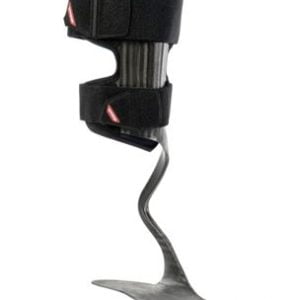What is Carpal Tunnel Syndrome:
Carpal Tunnel Syndrome is a common nerve condition which can cause pain, weakness, numbness and tingling in the hands and arms. Carpal Tunnel Syndrome occurs when the median nerve becomes compressed as it travels through the wrist. The median nerve is a large nerve which passes through the carpal tunnel, which is a narrow passage in the wrist made up of small bones and soft tissues which acts as a pulley mechanism for bending the fingers.
Carpal Tunnel Syndrome symptoms can range from mild discomfort to significant pain with impact on daily activities and functions. It is a condition that can worsen over time and prolonged pressure on the median nerve can lead to permanent nerve damage. Early diagnosis and treatment intervention is vital to relieve symptoms and reduce progression.
Most Carpal tunnel symptoms are provoked by repetitive grasping and manipulating activities, or from sleeping with your wrists in a constant bent position.
Wrist Splinting for Carpal Tunnel Syndrome:
In the early stages of Carpal Tunnel Syndrome a wrist splint is recommended to relieve symptoms and reduce the risk of deterioration. It is usually advised that a wrist splint is worn at night as this prevents the wrist from bending during sleep and facilitates normal daily activities. Keeping your wrist in a straight of neutral position reduces pressure on the median nerve as it passes through the carpal tunnel. However, it can also be beneficial to wear a splint during the day when completing repetitive activities which aggravate your symptoms.
An improvement in symptoms should be noticed within four weeks of regular splint wear. 
Clinical Assessment:
When assessing a fitting a Carpal tunnel wrist splint your clinician will check:
- Your manual muscle movements
- Active and passive joint ranges in the wrist and fingers.
- Upper limb reflexes
- Sensation, this involves pressure on the finger tips with a special instrument whilst your eyes are closed.
- Skin condition
- A check of your current pain scales.
- An evaluation of swelling around the wrist and hand.
- A check of any deterioration in muscle bulk.
From this assessment your clinician will be able to measure and fit the most suitable wrist brace for your individual needs. They will ensure a snug and comfortable fit as a brace fitted too tightly or poor fitting can apply further pressure to the median nerve.
Types of Carpal Tunnel splints:
The most commonly used splints in the treatment of Carpal tunnel Syndrome are volar splints, where a semi-rigid or rigid bar passes under the wrist and into the palm of the hand. Total Body Orthotics provides a range of wrist supports for Carpal Tunnel syndrome.
- Universal CTS Wrist Brace- Click here
- Ligaflex Classic Wrist Support- Click here
- Selection Open Wrist Support- Click here
If you have any questions please contact a member of the team using our online enquiries form or by emailing enquires@totalbodyorthotics.com

























